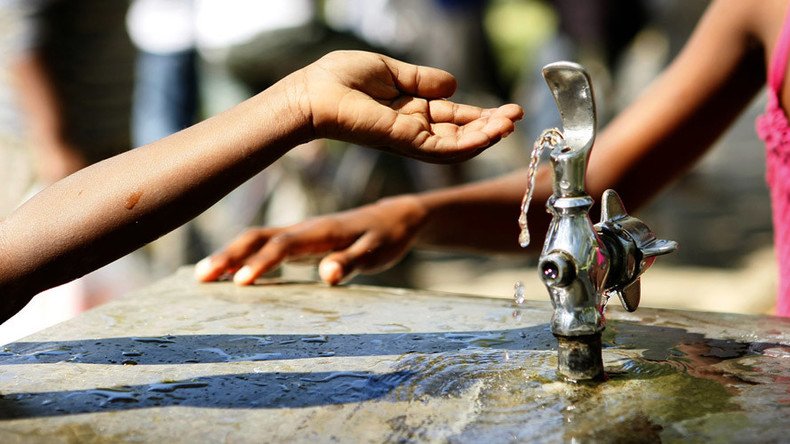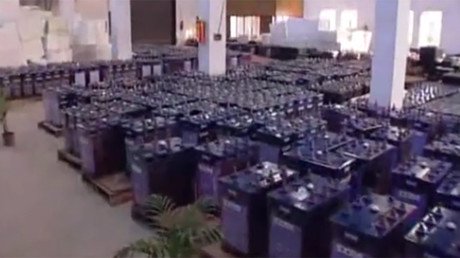Hundreds of US schools test positive for unsafe lead levels in water

Flint, Michigan has become the epicenter of the lead water crisis in the United States, but hundreds of schools across the country have tested positive for unsafe lead levels in their water over the past three years, according to a new report.
In fact, 278 schools violated the safety levels for lead created by the Environmental Protection Agency since 2013, the Associated Press reported, citing its analysis of government data. In the past year alone, 64 schools tested for unsafe water.
About 90 schools had lead levels in the water that were at least double what the federal government considers acceptable, according to the data. The EPA states that lead levels over 15 parts per billion are unsafe ad require action.
Even these statistics may offer only a snapshot of the situation, since the data comes from schools and daycare centers that are required to test their water for lead. Ninety percent of schools in the US get their water from municipal systems, meaning local officials are responsible for testing the water at separate locations. If a school has its own water system, it’s responsible for testing, though a facility can be declared safe even if one drinking fountain is delivering unsafe water, AP reported.
‘Intentional scheme’: Racketeering lawsuit takes aim at Michigan gov. over #FlintWaterCrisishttps://t.co/gwlJRB3MM0pic.twitter.com/sdZC4Ec6Xs
— RT America (@RT_America) April 7, 2016
The good news is that the source of the problem is fairly easy to pinpoint. Generally, lead gets into the water at buildings and schools that are older and were built to feature lead delivery pipes. The water can leach lead off the pipes and become contaminated, particularly over weekends when sinks and drinking fountains aren’t being used.
The bad news is that replacing lead pipes can be extremely expensive, and many schools simply cannot afford to do so. One elementary school in Ringle, Wisconsin tore out its drinking fountains more than 10 years ago and decided simply to start buying bottled water for its students, citing the extreme cost of replacing pipes.
"For the cost of that, you might as well build a new school," Jack Stoskopf, an assistant superintendent, told AP.
Half of the schools with unsafe water level readings are located on the East Coast, where buildings tend to be older and lead pipes more commonly found. Pennsylvania, Maine and New Jersey were at the top of the list.
In March, sinks and water fountains at 30 of 66 schools in Newark, New Jersey were ordered to be shut off after testing indicated they were delivering unsafe water. The high lead levels were known about as far back as six years ago, according to the New York Times, but they were generally dealt with by adding water filters or replacing faucets. Health officials said they would test about 17,000 students for potential lead poisoning.
Elsewhere in New Jersey, two schools in Hamilton just recently detected lead levels in the water that are unsafe.
In Boston, only 37 schools still use tap water as a drinking option. All the others bring in bottled water for students due to concerns over lead.
Lawmakers at the state and federal levels have proposed expanding testing at schools and other buildings to ensure that water is safe. In Michigan, where the state is still reeling from the Flint crisis, Republican Governor Rick Snyder recently proposed establishing limits for lead levels that are stricter than the EPA’s.













